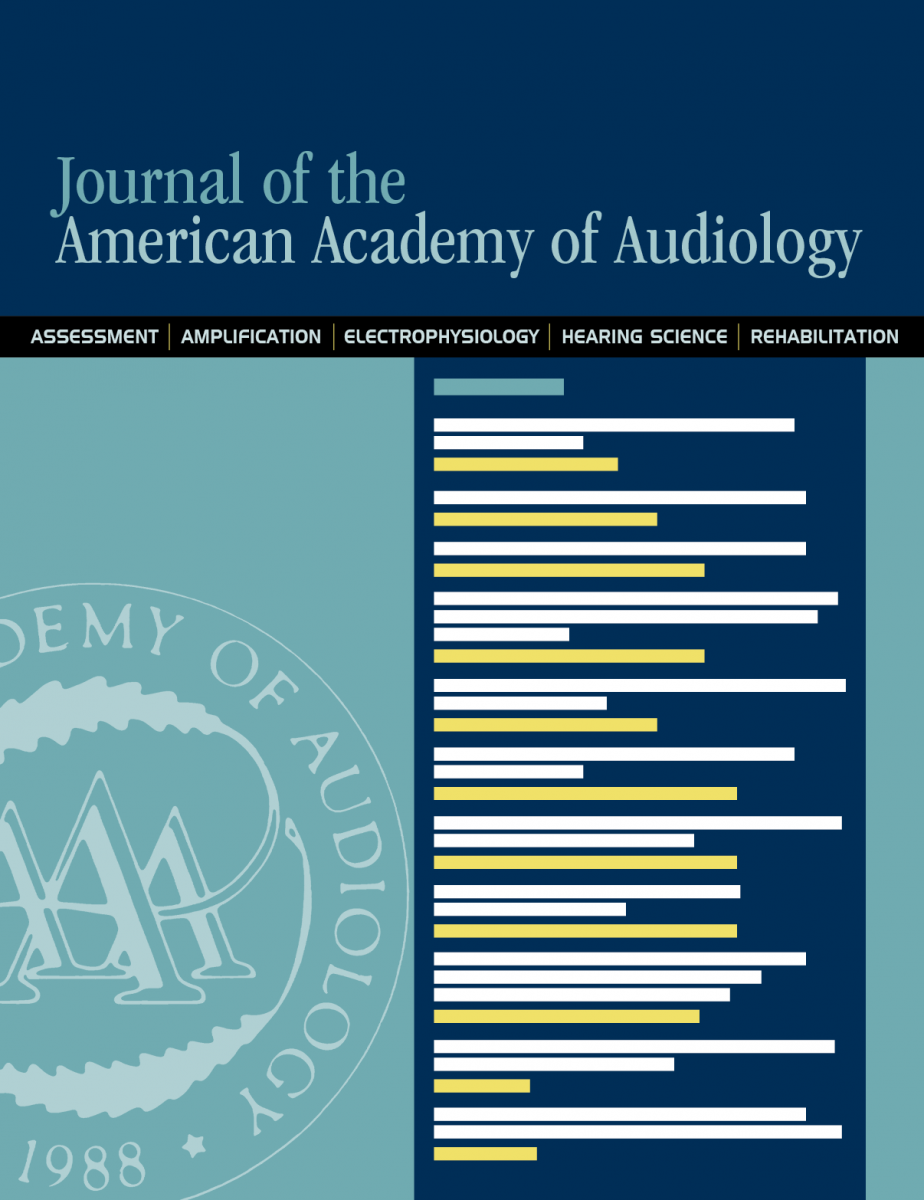
As the JAAA editors along with our editorial team, we are proud to announce new Fast Track content for JAAA, as of June 17, 2019. We are working diligently to publish ahead of print. We strive for a two-month turnaround on articles from acceptance to digital publication. Thank you for your patience. Plan to see more of these announcements about content updates each month.
-
Large Vestibular Aqueduct Syndrome: Parents’ and Audiologists’ Perspectives
Authors: Sullivan, James C; Johnson, Carole E; Danhauer, Jeffrey L; Jilla, Anna Marie;
Sanchez, Kristin R -
Tinnitus Sound Therapy Trial Shows Effectiveness for Those with Tinnitus
Authors: Tyler, Richard S; Perreau, Ann; Powers, Thomas; Watts, Alexandra; Owen, Rachael; Ji, Helena;
Mancini, Patricia C -
Visual Reliance During Speech Recognition in Cochlear Implant Users and Candidates
Authors: Moberly, Aaron C; Vasil, Kara J; Ray, Christin
-
Letter to the Editor by James Peck: A Thought on ‘Self-Reported Hearing Difficulties’
Log in through the here on the Academy site and click on “Fast Track” tab to see these latest article additions.
Gary Jacobson, PhD, is the editor-in-chief of the Journal of the American Academy of Audiology. Devin McCaslin, PhD, is the deputy editor-in-chief of the Journal of the American Academy of Audiology.
Recent Posts
ASLP-IC Readies for Rollout: Here’s What You Need to Know
The Audiology and Speech-Language Pathology Interstate Compact (ASLP-IC) continues to move toward full implementation, expanding opportunities for audiologists and speech-language pathologists to practice across state…
How Do Animals Perceive Music?
Music can be defined as vocal, instrumental, or mechanical sounds, with rhythm, melody or harmony, and often, an expression of human emotion. Music can transcend…
‘Eye’ on Health: AI Detects Dizziness and Balance Disorders Remotely
Interesting research led by audiologist Ali Danesh, PhD, at Florida Atlantic University (FAU) helped develop a novel, proof-of-concept tool to help identify nystagmus using a…


